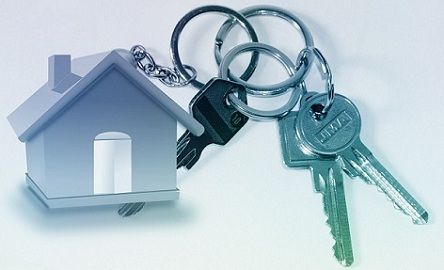You may believe that a lease and a rent are basically the same but, in reality, there are slight differences between these two. There are several distinctions to be aware of when looking for a lease or rent whether you manage properties and rent full-time or rent out a house as an additional source of income. Whatever the case may be this article will clarify the differences between the two.
What is a Lease?
A lease is a legal agreement in which the tenant agrees to pay the owner for the use of a property.
It is an implied or written agreement that specifies the terms under which a lessor agrees to let a lessee use a property.
A lease is a contract in which one party rents land, buildings, or other property from another party for a specific length of time; it is also a contract or instrument in which one party transfers property to another for a period of time; typically 6-12 months, however any length of time that two or more parties agree to in the lease could be set. Its managed by the owner of the property.
Many landlords need renters to sign lease agreements before moving into a rented house.
Residential leases are written agreements between a landlord and a tenant that spell out the expectations of both parties, including rent, pet laws, and the length of the agreement.
Both parties agreed on the contract’s provisions, and if either fails to meet its contractual responsibilities, there will be penalties. A solid, well-thought-out, and well-worded lease contract can assist preserve both parties’ best interests; as neither can change the contract without the other’s written consent.
Types of Leases
Although leases vary widely, there are a few that are popular in the real estate industry. The desire of the lessor, as well as market developments, impacts the structure of a lease. Some leases throw the responsibility on the tenant, while others place the full burden on the landlord.
The following are the common types of leases;
#1. Absolute Net Lease
In an absolute net lease, the renter assumes full responsibility for all costs, including insurance, taxes, and upkeep. In single-tenant systems, when the property owner develops dwelling units to meet the demands of a renter, the absolute type is typical. The owner hands over the completed unit to the tenant for a particular timeframe.
In such a circumstance, the renters are usually huge companies that are aware of the contract’s provisions and are willing to absorb the costs. Homeowners, on the other hand, frequently accept lower monthly charges because the renter bears the majority of the burden.
#2. Triple Net Lease
Insurance, maintenance, and real property taxes are three expense categories linked with the triple net lease because the property owner passed all of these costs on to the tenant in the form of rent excesses; they are also known as pass-through or operating expenses.
A triple net agreement is a standard in single-tenant, as well as multi-tenant, rental units.
The tenant has control over landscaping and external upkeep in a single-tenant lease. The tenant determines what the property looks like.
The property owner has complete control over the appearance of a multi-tenant arrangement. No tenant will be able to detract from a building’s general beauty in this manner. A multi-tenant agreement also requires the tenant to pay a pro-rata share of the operational costs on a regular basis.
#3. Modified Gross Lease
The landlord bears the entire burden under the modified gross lease. According to the conditions, the owner is responsible for all insurance, property taxes, and common area maintenance. The tenant, on the other hand, is responsible for all janitorial, utility, and interior management expenditures.
The tenancy agreement also states that the owner is responsible for the roof and other structural components of the building. The monthly charges are greater than other forms of tenancies since the owner covers a major amount of the tenancy’s costs.
#4. Full-Service Lease
The full-service lease, as the name implies, covers the majority of the costs of running a facility. However, there are some exclusions, such as data and phone charges. The remaining costs, such as common area upkeep, taxes, interior, insurance, utility, and janitorial charges, are the responsibility of the property owner. As a result, the monthly cost is slightly higher, and this type of lease is frequent in large multi-tenant apartments where partitioning a building into smaller rooms is impractical.
The tenant benefits from this arrangement because there are no additional fees beyond the regular monthly rent. The drawback is that the owner may opt to add a small premium to the monthly payment to cover the tenancy’s costs. Most owners prefer the full-service arrangement since it gives them total power over a building’s overall look.
How Long Does a Lease Last?
Leases are normally for six or twelve months, but they can be longer or shorter. The terms “rental agreement” and “lease” are similar.
Even though a lease is a contract, both parties must follow it for the term of the agreement. You are to pay rent on time and regularly. The property owner, on the other hand, cannot terminate the lease or amend the terms without the consent of the tenant.
A written offer to enter a lease (for example, lease and rent a house) is binding in real estate. As a result, making numerous written agreements is not recommended, as more than one may be approved. The person has already signed many leases and is forced to pay various rents at that time.
Advantages of Leasing a House
There are numerous advantages to renting rather than buying a property, all of which revolve around money and independence. Examine the benefits of leasing and purchasing before making your final decision.
#1. Investing for Less
Depending on the lease agreement, all that is required to lease a house is a security deposit, the first and last month’s rent. Because owning a property often necessitates a large down payment; you’ll pay significantly less money to enroll in a lease and rent agreement.
You’ll likewise dodge the long-term costs of ownership, such as property taxes, homeowner’s insurance, and mortgage interest.
#2. Performing Fewer Repairs and Maintenance
Because you are not responsible for the upkeep, maintenance, or repairs; your budget will be more predictable when you lease or rent a house.
You will be responsible for paying rent as well as some or all of the utilities, depending on the lease agreement but the landlord is the one to pay for all repairs and maintenance; the only time you can pay is when your guest destroys anything in the house.
#3. Having More Flexibility
A lease agreement is usually for 12 months, providing you the option to leave when it expires. You only need to tell your landlord in writing with enough prior notice to discontinue your lease and rent agreement.
When you move out of a home that you own, you must sell it. The housing market influences the rate with which it sells, as well as the market price.
Furthermore, renting a home allows you to come and go as you like.
#4. No Loss of Equity or Property Value
You won’t have to worry about the property’s worth fluctuating owing to the housing market when you lease or rent a house. When the value of a property decreases, the owner loses equity.
Tenants who rent properties escape real estate changes and do not benefit or lose money.
What Is Rent?
Lease and rent are extremely similar. The most significant distinction between a lease and rent is the length of the contract.
Renting, commonly known as hiring or letting, is a contract in which one party pays for the brief use of another’s property. A rental agreement, unlike a long-term lease, provides tenancy for a shorter period of time usually 30 days.
Rent is a payment you give to the owner of a house on a regular basis for the use of that property, according to the lease (rental) agreement; you make payment for at least the duration of the lease. The tenants that rent the property manage it.
Most rent is “month-to-month,” and they immediately renew at the end of each time frame (month), unless the tenant or landlord specifies otherwise. A rental agreement allows both the landlord and the tenant to amend the terms of the agreement after each month.
Rent is a recurring fee paid to a property owner for the use of a building, house, commercial space (office, store, warehouse, etc.), or land. In other words, rent refers to the payment or cash equivalent that you give to the owner of a property for the use of that property.
Difference Between Lease and Rent
The terms “lease” and “rent” are frequently interchanged to refer to the same concept. However, the phrase might apply to two different sorts of contracts. Both lease and rent are legally binding contracts. However, each has a distinct function.
The fundamental difference between a lease and a rent agreement is the duration of the arrangement. A rental arrangement is normally for a short amount of time (usually 30 days), but a lease agreement is for a longer period of time (commonly 12 months; though 6 and 18-month leases are also common).
The landlord and the tenant (you) must follow the terms of the lease during the period of the lease. That means the landlord can’t increase the rent without your permission or dismiss you without reason; you simply can not stop making payments or breach the lease without penalties.
Whenever the lease expires, tenants are rarely given the option to renew it (unless they have a rent-stabilized apartment). When your lease expires, you will either have to depart the property, start a month-to-month rental agreement, or extend the lease at the same or higher amount, depending on the terms you and your landlord agreed upon. It’s critical to read your lease carefully before signing it to ensure that you understand the terms.
In terms of structure and flexibility, both lease and rental arrangements can differ. Some leases, for example, may include a pet policy for the rental property, while others may include additional restrictions or rules, such as loud noises.
What is a Rental Agreement?
Lease agreements and rental agreements are quite comparable to one another. The length of the contract is what differentiates rental agreements from lease agreements as being the most significant distinction between the two. A rental agreement, as opposed to a long-term lease arrangement, typically grants occupancy for a shorter length of time—usually for a duration of thirty days.
Should You Rent or Lease a Car?
This can vary depending on how long you need a car, how quickly you need it, and how much freedom you wish to have. When compared to renting, leasing can save you money and give you access to a wider selection of vehicles throughout the standard lease term of two to four years. When you need a car for a shorter period of time or if you need one right away, renting may be the better option. Additionally, if you need coverage, a rental business may often provide it for you, whereas leasing a vehicle will require you to have your own automobile insurance.
Why Rent a Car Long-Term Instead of Leasing?
When compared to signing a lease, renting a property for an extended period of time offers two main advantages: quickness and flexibility. When you lease a car, the application process typically takes longer and includes a credit check. If you have a bad credit score or if you need a vehicle immediately, renting is probably going to get you behind the wheel faster than buying one would. The terms of a rental contract might vary from company to company, but some businesses will sign agreements for up to a year. Alternating between vehicles on a more regular basis may also be an option provided by some automobile rental businesses. When you sign a lease, you are normally obligated to keep the same car for the entirety of the contract.
What Is a Lease Deed?
A lease deed is a written document that outlines all of the terms and circumstances of the rental agreement between the owner of the property and the renter. When renting a business property, both parties will need to sign a lease deed in order to legally bind their relationship. If the length of the lease is going to be for more than 11 months, a lease deed needs to be recorded.
Should I Opt for a Lease Agreement or Leave and Licence Agreement?
A leave and license agreement does not generate any interest in the property for the tenant, whereas a lease does create an exclusive interest in the property in favor of the tenant. In contrast, a lease does create an exclusive interest in the property for the tenant.
FAQs
Is lease and rent the same thing?
Leasing is described as an agreement between a lessor and a lessee in which the lessor purchases an asset and allows the lessee to use it for a fixed length of time. Allowing another party to inhabit or use an asset for a short period of time in exchange for a fixed payment is known as rent.
Is lease better than rent?
A lease may be the best option if consistency is your top goal. Because leases are constructed for secure, long-term use, many landlords prefer them to rental agreements. Placing a tenant in a property for at least a year can provide a more stable rental income stream while also reducing costs.
Is leasing a home a good idea?
Depending on the economic conditions and the home’s market value, the house may not sell or may sell for much less than it is worth. Leasing is more cost-effective than buying if you know you’ll be in an area for fewer than five years. Furthermore, leasing a home enables you to come and go as you please.






